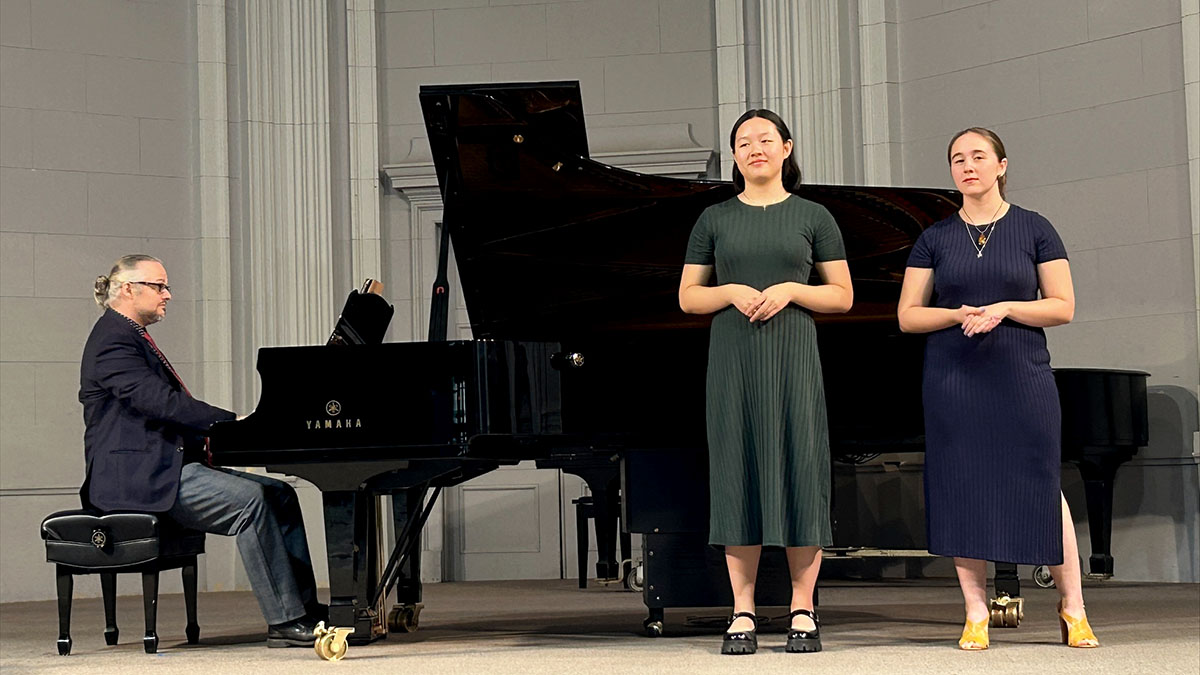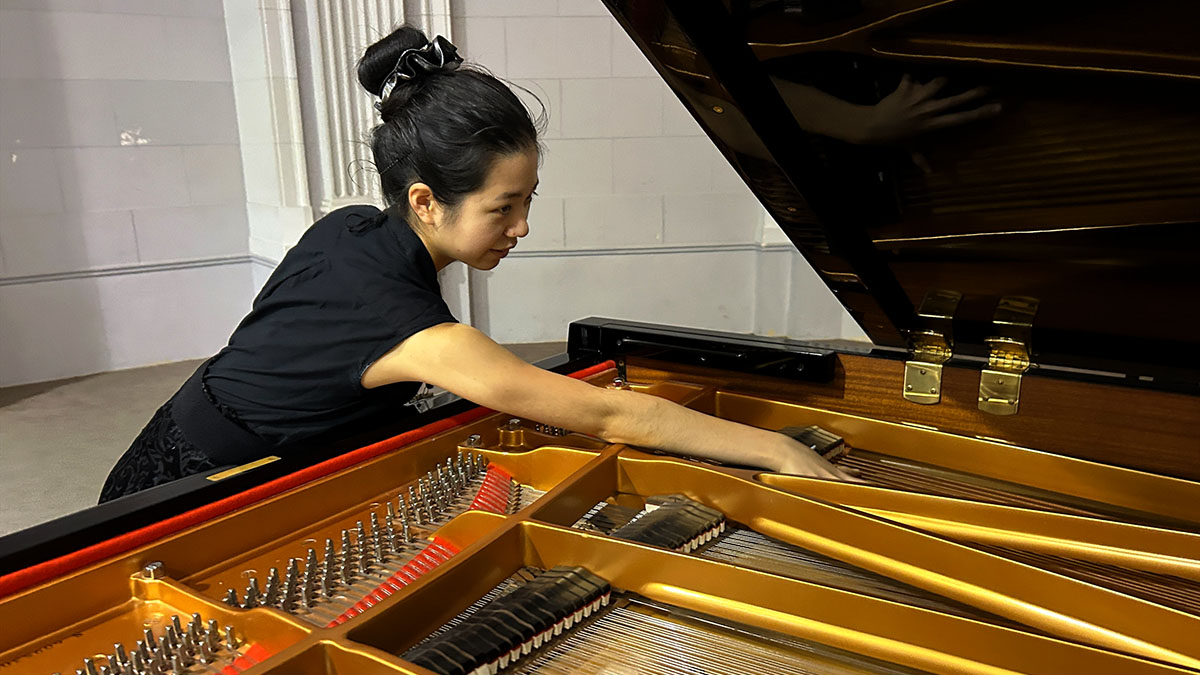In concert halls around the Western world, classical music remains overwhelmingly male-dominated, but a recent concert at the University of Ottawa reminds that female composers have made important contributions to the art and should not be ignored.
Students performed selections by composers such as Fanny Mendelssohn, Amy Beach, Lili Boulanger, Alexina Louie, and Cecilia Livingston. Each woman faced unique challenges in a male-dominated industry.
Julie Pedneault-Deslauriers, who hosted the Oct. 5 concert and is an associate professor of music theory at uOttawa, says there have always been female composers and musicians. Still, historians don’t always have traces of them.
Still, “we do have scores, we do have letters,” said Pedneault-Deslauriers. “We do have documents that show us that women were essential for musical life to happen.”
Lauren Reisig, a first-year master’s student in music at uOttawa explained that many remarkable female composers and musicians were forced to publish under male names.
Reisig pointed to Fanny Mendelssohn, who was a German composer and musician during the early to mid-1800s. Like many female musicians and composers, she faced challenges and setbacks because of her gender.
She and her younger brother, Felix, were prodigiously talented. While Felix received wide acclaim and many opportunities, Fanny often had to navigate restrictions that limited her public recognition.
“When [Fanny] Mendelssohn was 14, her father wrote to her, ‘music will perhaps become Felix’s profession, while for you, it can and must only be an ornament,’” Pedneault-Deslauriers said. She explained that although Fanny continued composing, she initially had to publish her works under her brother’s name until she was married and gained the confidence to release them under her own name.

Pedneault-Deslauriers said that much of what we listen to focuses on major works such as large compositions like symphonies, which may explain why we don’t hear female compositions as often.
“There’s a lot of emphasis put on the big works, the symphonies. But a lot of women traditionally didn’t have access to orchestras … so they wrote sometimes for smaller genres, piano and songs, and not exclusively,” Pedneault-Deslauriers said.
An analysis by the U.K.’s Donne Foundation of about 16,000 scheduled performances worldwide revealed only 7.5 per cent of the works played were composed by women, despite centuries of contributions from female composers and musicians.
“Their compositions are not played enough, especially the ones from the past,” said Lucia Micu, a third-year music student at uOttawa. “So, when you do find something, and it’s like a gem, you are encouraged to share it with as many people as possible.”
She said she hopes these scores can become recognized because they are great art and not just because they were composed by women.
A gender imbalance continues in classical music today. Eighty-eight per cent of women report their career had been restricted in at least one way because of gender, according to the 2024 Women Musicians Insight Report. Furthermore, 51 per cent of women reported encountering gender discrimination, in contrast to just six per cent of men.
Joanna Estelle, a composer who attended the concert, said the performance resonated with her.
“I’m a woman composer, and it hasn’t been an easy road,” she said. “Women, up until really recently, have been really under highlighted.”
Although people increasingly recognize female composers, widespread acknowledgment is still a dream.
“This is such a recent development that women have been getting the spotlight that they finally deserve, not just in music, but in other areas of life as well,” said Emma Kwong, a second-year uOttawa music student. “I think now that we have the momentum, we should focus on bringing all that up, to make up for all the missed time in giving women the credit they deserve.”
Pedneault-Deslauriers says there are some simple things that can help emphasize the role women have played, such as featuring female and marginalized composers in the reportoire for children when they start learning music.
“You need exposure, you need to play this music, to teach this music, to program it in concert so that it doesn’t become, ‘oh, we need it?’” Pedneault-Deslauriers said. “Instead it becomes part of a [music] culture.”




